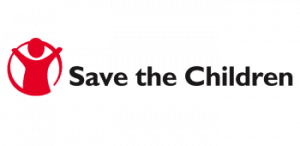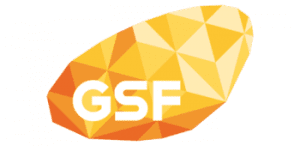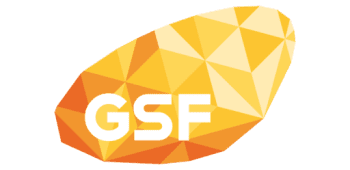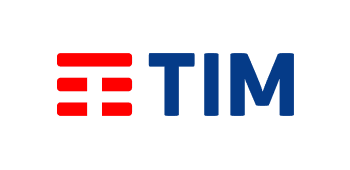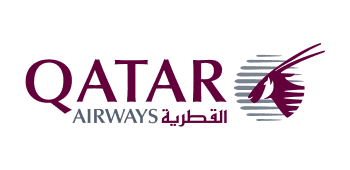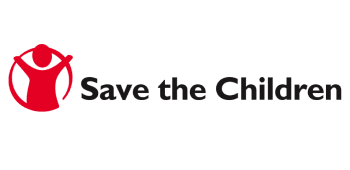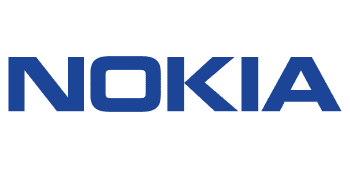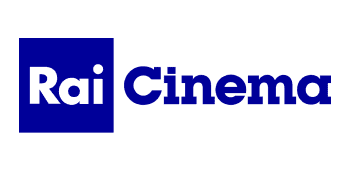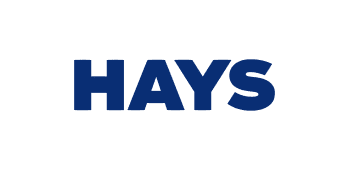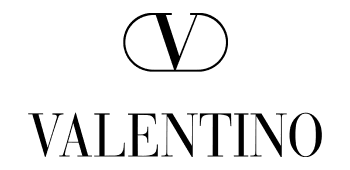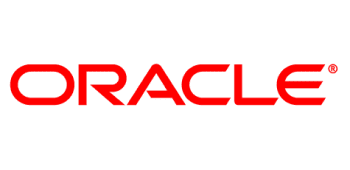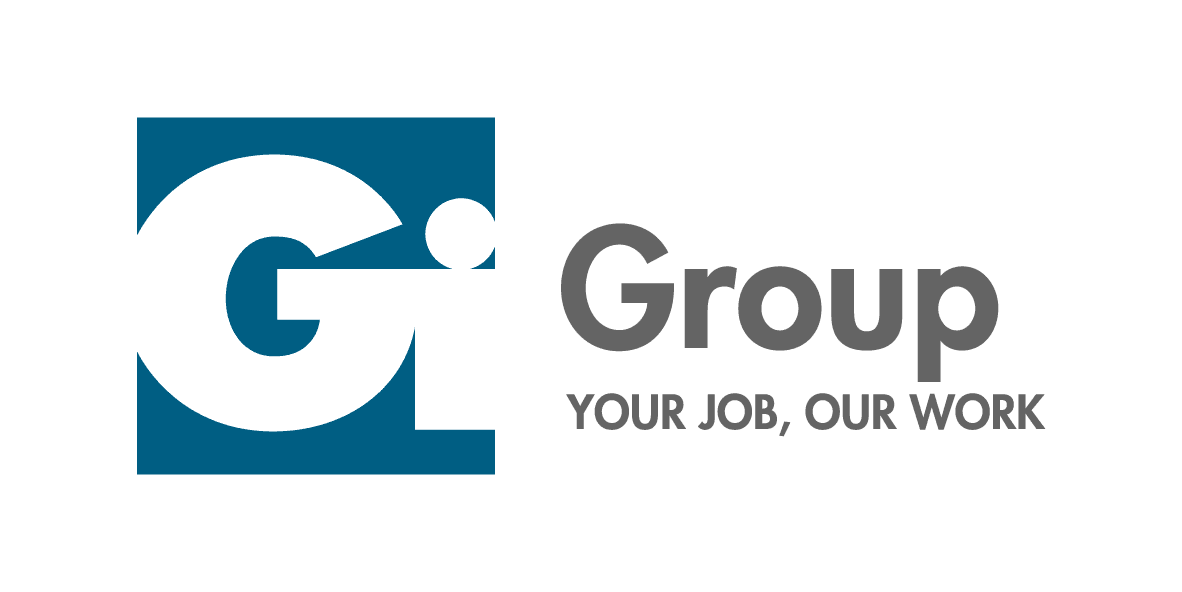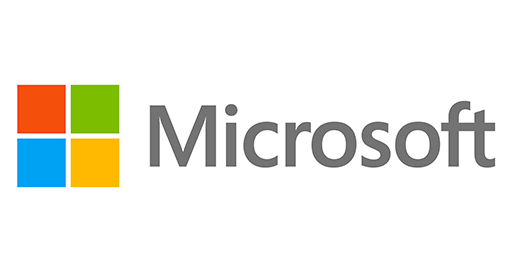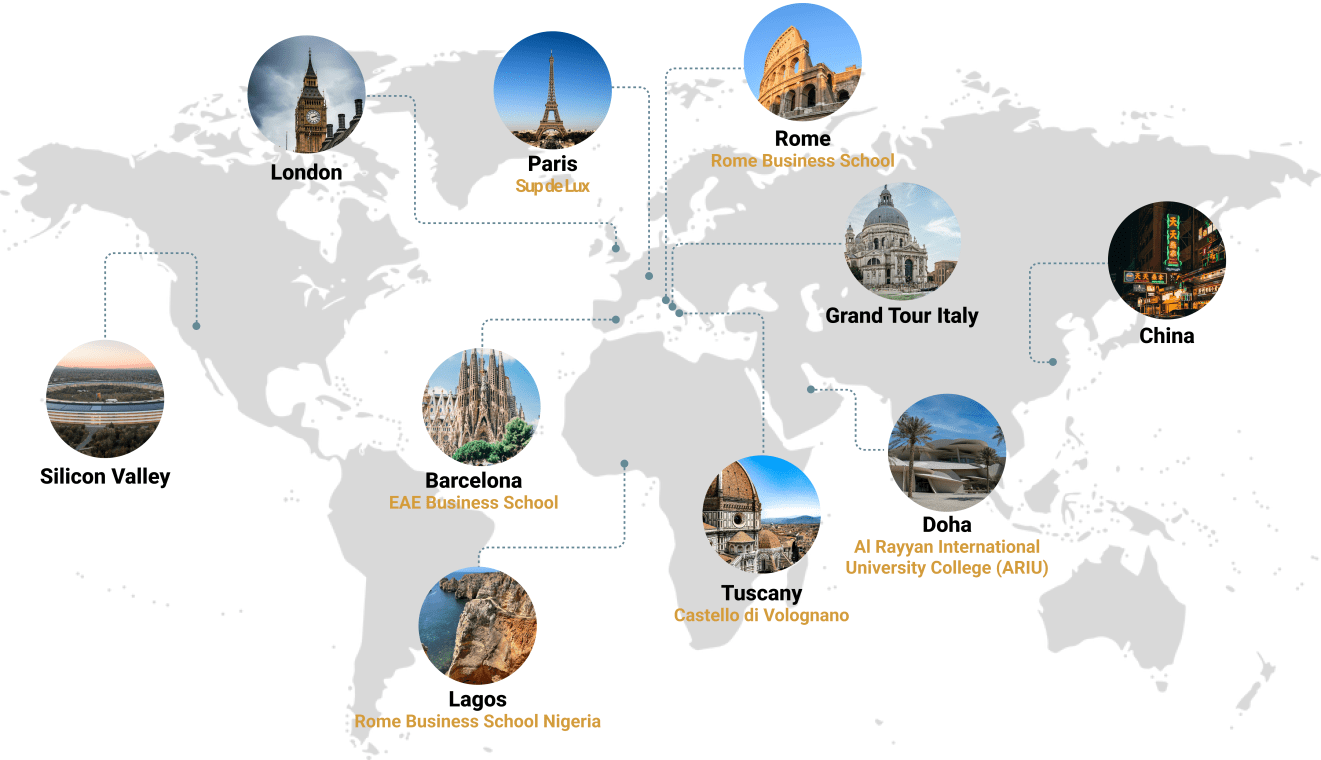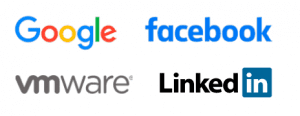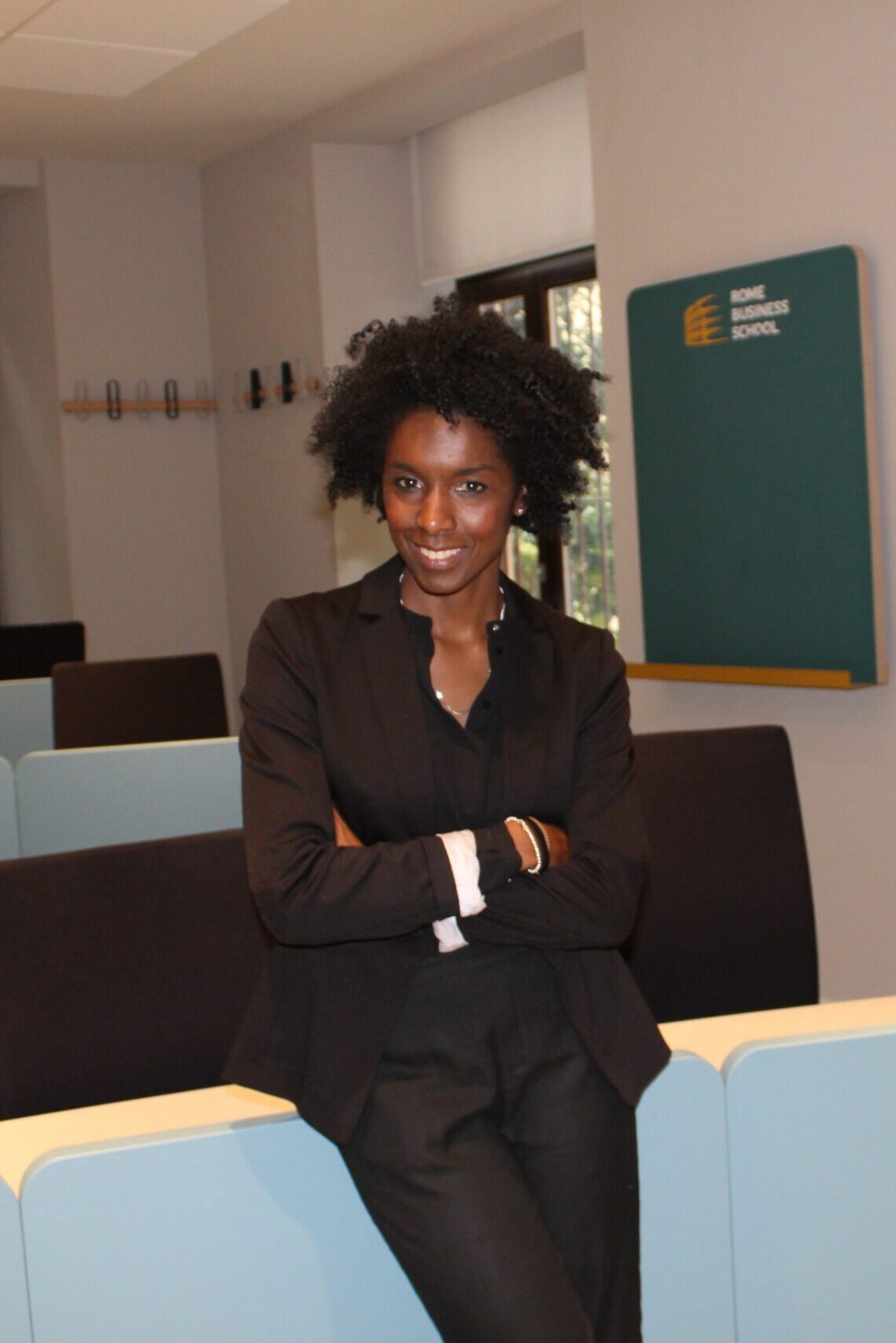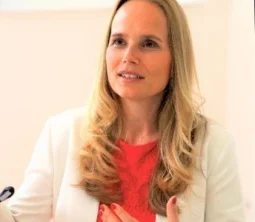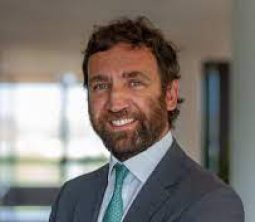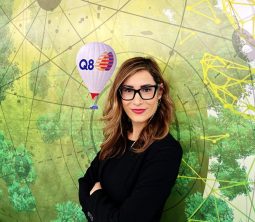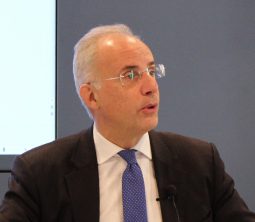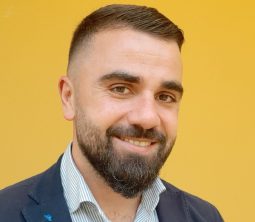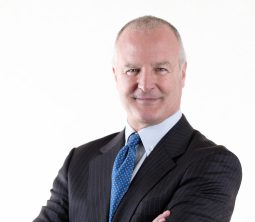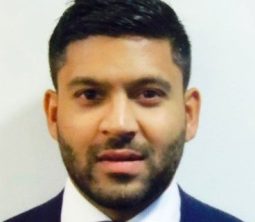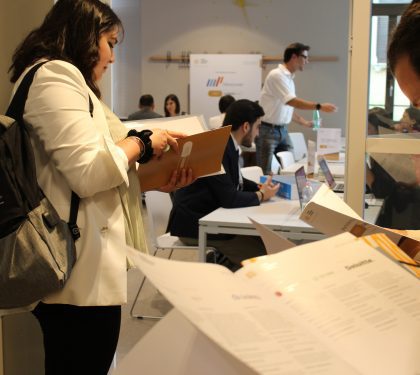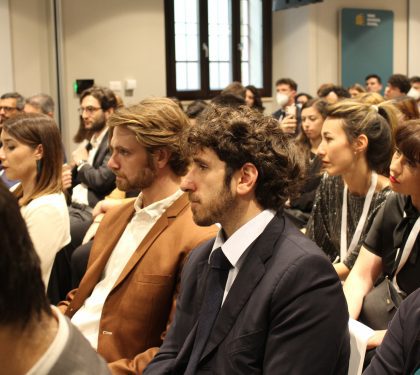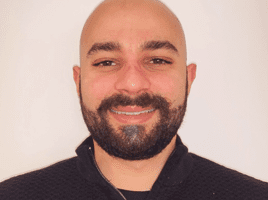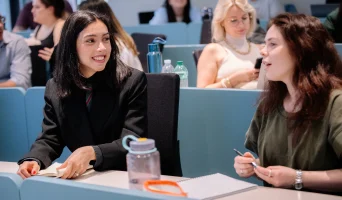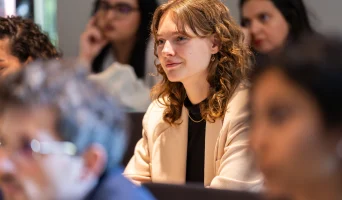During the first module of the Master in Marketing, students will learn how to:
- Managerial Economics
This module aims to prepare students by providing them with the essentials of entrepreneurship and business planning. - Management Accounting for Decision Making
The course focuses on the financial aspects of business decisions giving students an overview of the accounting tools useful and most used for short and long-term decision making such as cost management, budgeting, CVP analysis, and investment appraisal techniques. - Business Strategy
Through this module, students will know how to understand the long-term direction and strategy of a company, and will be able to identify the strategic business units of organizations. - Financial Statement Analysis
This course aims at equipping students with an understanding of financial statements and their usefulness for decision making. - Project & Operations Management
With this module, students will be able to manage projects, examine data and information, and have a diagnostic approach in solving problems. - Marketing: Traditional and Digital
Students will learn the application of marketing principles in organizational decision making. - Human Resource Management
This subject area focuses on strategic human resource issues such as workforce acquisition, development, motivation and retention. - Data Analytics for Managers
This course is designed to equip students with the basic knowledge needed to analyze and interpret large sets of data, to make effective business decisions and strategies.
During the second module of the Master in Human Resources and Talent Development, students will learn how to:
1)People and Culture Strategy
- Intro to the New HR, roles & organizational strategies
- Talent Acquisition process/Identification (Onboarding, Candidate Experience)
- HR Assessment, Psychometric Models
- Diversity & Inclusion
- Employer Branding
- Workplace Culture
2)Talent Development
- Training and Development (Learning & Development)
- Contracts, Total Compensation (Benefits & Rewards)
- Performance Management (Feedback)
- Creating a healthy work environment with work/life balance
- Employee Engagement and Retention, and succession planning
3)Organizational Behaviour
- Individual, group and organizational dynamics
- Change Management
- HR as ethical change agent
- Conflict management
- Facilitation and Consultation
- Valuing diversity within work teams
4)Organizational Development
- Agile for HR
- Leadership, motivation and individual behaviour
- Health & Safety Management
5)Global HR
- Hybrid working and flexible policy development in a global setting
- Global legal environment
- Cultural sensitivity
- Human resource information systems
- Managing a virtual workforce at a distance
During the third module of the Global Master in Human Resources and Talent Development, students will learn how to:
6) Digital HR and Tech
- Fundamentals of Digital HR Transformation & Data Driven HR Strategy
- Digital Learning and Development
- People Analytics & People Cost Optimization
- HR and AI Tools: Leveraging Artificial Intelligence for Human Resources Management
7)Better Managers for a Better World
- Building ethical and responsible organizations
- Data Protection and HR
- Working with an NGO with purpose
Why Electives?
The goal of Rome Business School is to develop future managers, entrepreneurs, and professionals who are ready to capitalize on the benefits of digitalization, go global, and have a positive impact on society.
Electives are ideal tools for students to improve their employability by focusing on high-demand skills.
- Electives assist students in carving out a niche for themselves and becoming more competitive.
- Electives expose students to courses they might not have encountered otherwise.
- Electives provide a one-of-a-kind curriculum that fosters life and career skills.
- Elective courses are organized in 7 main areasof interest:
Macro Area I
Next Gen Business: Innovation, AI and Digital Growth
- Area 1: Innovation & Growth
- Area 2: AI4 Business: Shaping the Future
- Area 3: Tech & Digitalization
Macro Area II
Global Business Excellence
- Area 4: Industry Business Excellence
- Area 5: International Business
- Area 6: Global Electives with RBS international partner Business Schools
- Area 7: Introduction to preparation for professional certifications
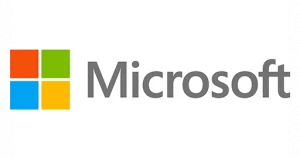
Rome Business School’s Practice Lab is where theoretical concepts are put into practice and participants learn through experience. Students will immerse themselves in 10 hours of practice lab, where theoretical concepts will be put into practice and learning will occur through experience.
The lab is conducted by managers from: Microsoft* that will give different specialized knowledge, exercises and will network and transfer their experience to the students from their own HR practices.
*The company partner is a subject to change
The Global Trends lab consists of 2 virtual sessions:
Session 1: How to Find Sources to Identify Global Trends Identify sources and monitor Global trends Deep Dive into the Global World Trends Shaping the World of Today – guest speakers from UN, UNIDO, ILO. Examples of Global Trends:
- The Future of Work
- Ethics of AI and Big Data
- The World in 2030: Future Scenarios
Session 2: Understand the impact of global trends on businesses, and explore ways in which businesses can adapt and transform based on future trends and forward-thinking strategies
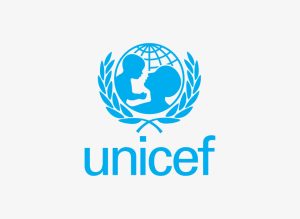
You will have the opportunity to demonstrate your abilities by tackling a real-world business challenge at the end of your educational experience. Make use of your skills to identify opportunities and create a truly innovative strategy.
Take on a genuine business challenge. You can work with a small group to develop a marketing strategy for a new business, a strategy to increase online sales, or a loyalty offering for different generations.
Two case studies from two different companies will be assigned to you to put your master’s course knowledge to the test.
Previous years’ experiences
The Practical Challenge:
Inputs, reflections, analyses and deliverables on one or more of the following topics that are part of the organization’s HR agenda for 2022, such as defining the prerequisites, summary and contents a DEI (Diversity, Equity, Inclusion) policy should have in order to regulate all the internal HR processes with an impact on DEI. Another tasks includes identifying the most relevant metric and KPI to be tracked to evaluate the effectiveness of internal programs an initiatives.
